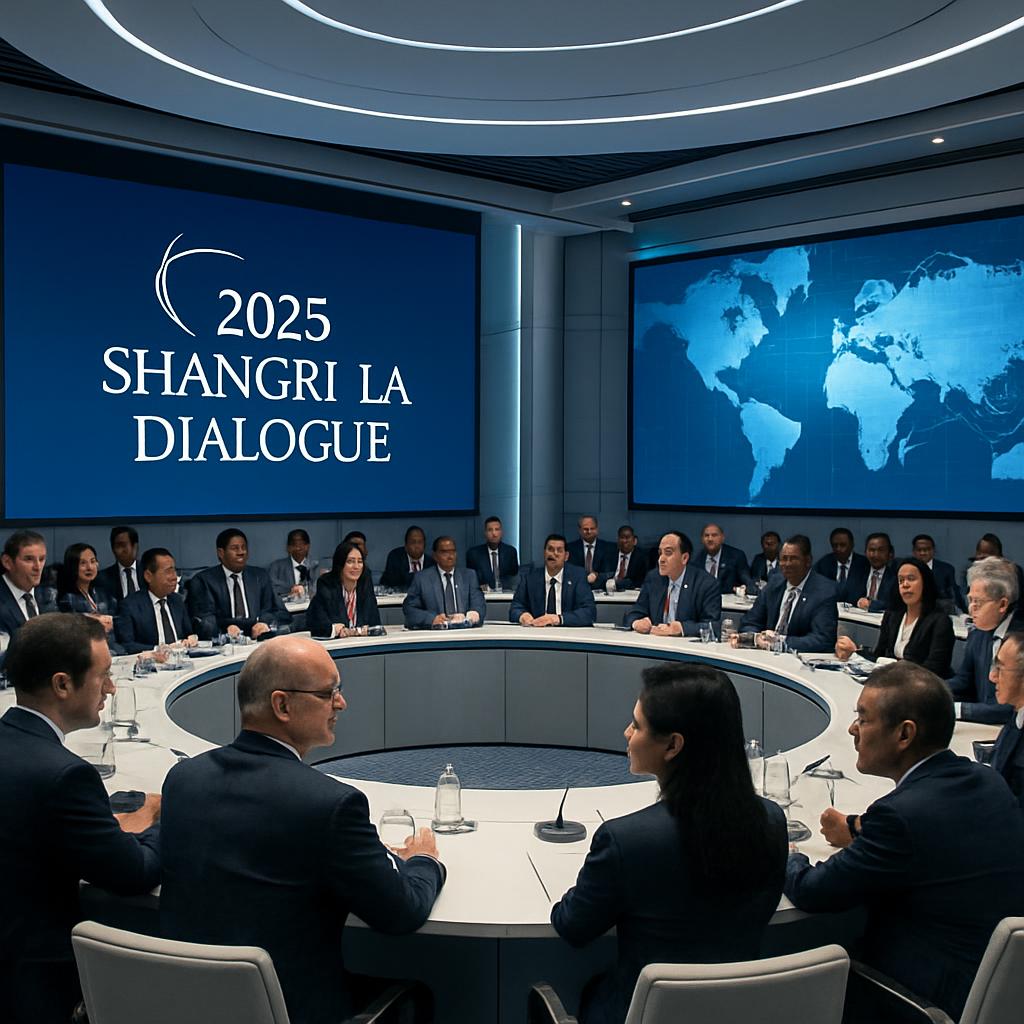U.S-PRC Rivalry Takes Center Stage at Shangri-La Dialogue 2025
The annual Shangri-La Dialogue concluded this weekend with stark divisions on display between major powers, as the United States doubled down on its confrontational approach to China while France proposed a “third way” for smaller nations caught between the superpowers.
The three-day security summit, attended by defense ministers and senior officials from across the Asia-Pacific region, was marked by the notable absence of Chinese Defense Minister Dong Jun — the first time China’s top defense official has skipped the gathering since its inception.
Macron Calls for Independent Coalition
French President Emmanuel Macron opened the dialogue Friday night with a bold proposal for European and Asian nations to form an independent coalition, warning that countries shouldn’t be forced to choose sides between Washington and Beijing.
“If we do so we will kill the global order and we will destroy methodically all the institutions we created after the Second World War,” Macron told the packed auditorium at Singapore’s Shangri-La Hotel.
The French leader drew explicit connections between conflicts in Europe and potential flashpoints in Asia, arguing that allowing Russia to seize Ukrainian territory without consequences could embolden similar actions against Taiwan or the Philippines.
“If we consider that Russia could be allowed to take a part of the territory of Ukraine without any restriction… how would you phrase what could happen in Taiwan?” Macron asked.
U.S. Focuses on the PRC Threats in the Region
U.S. Defense Secretary Pete Hegseth took a markedly different approach in his Saturday address, delivering what observers described as the most confrontational American speech at the dialogue in recent years.
“We will not be pushed out of this critical region. And we will not let our allies and partners be subordinated and intimidated,” Hegseth declared, accusing China of seeking to “fundamentally alter the region’s status quo” through military coercion and gray-zone tactics.
Hegseth announced significant military deployments to the region, including the first overseas deployment of Marine anti-ship missile systems to the Philippines and plans to test-fire the Army’s Typhon missile system in Australia this summer.
The defense secretary also pressed Asian allies to dramatically increase defense spending to 5% of GDP — matching commitments made by European NATO members — in what he called the face of “a far more formidable threat from Communist China.”
China’s Calculated Absence
Beijing’s decision to send only a lower-level delegation led by Rear Admiral Hu Gangfeng, rather than Defense Minister Dong Jun, drew widespread attention and speculation about China’s strategic calculations.
Singapore Defense Minister Chan Chun Sing, in his closing remarks Sunday, directly addressed China’s absence: “If China perceives that the world does not respect China sufficiently… then it is incumbent upon China to use every opportunity possible, including the Shangri-La Dialogue, to get its voice heard.”
The Chinese delegation that did attend issued a statement accusing Hegseth of “vilifying China with defamatory allegations,” but eschewed the customary press conference that typically follows the US defense secretary’s speech.
Regional Reactions
The competing visions presented by France and the United States highlighted the delicate position of smaller Asia-Pacific nations, many of which maintain economic ties with China while relying on American security guarantees.
Chan emphasized Singapore’s commitment to a rules-based international order where “states — big and small — have a fair chance to compete and can improve the lives of our people through trade and not war.”
Australian Deputy Prime Minister Richard Marles and officials from Thailand, the Philippines, and other ASEAN nations held extensive bilateral meetings with both American and French officials throughout the weekend.
Looking Ahead
The dialogue’s conclusion leaves fundamental questions unresolved about the future architecture of Indo-Pacific security. Macron’s proposal for a Europe-Asia coalition represents a potential alternative to the increasingly polarized U.S.-China competition, though it remains unclear how much support such an initiative would attract.
Meanwhile, Hegseth’s stance signals that the Trump administration intends to maintain maximum pressure on Beijing.
China’s reduced participation may indicate Beijing’s growing preference for alternative forums like its own Xiangshan Forum, potentially further fragmenting regional security dialogue.
The next test of these competing approaches will likely come as tensions continue to simmer over Taiwan, the South China Sea, and the ongoing war in Ukraine — conflicts that Macron argued are increasingly interconnected in an era of global strategic rivalry.
The Shangri-La Dialogue, organized by the International Institute of Strategic Studies, has served as the premier Asia-Pacific security forum since 2002.
The featured image was crated by an AI program.

